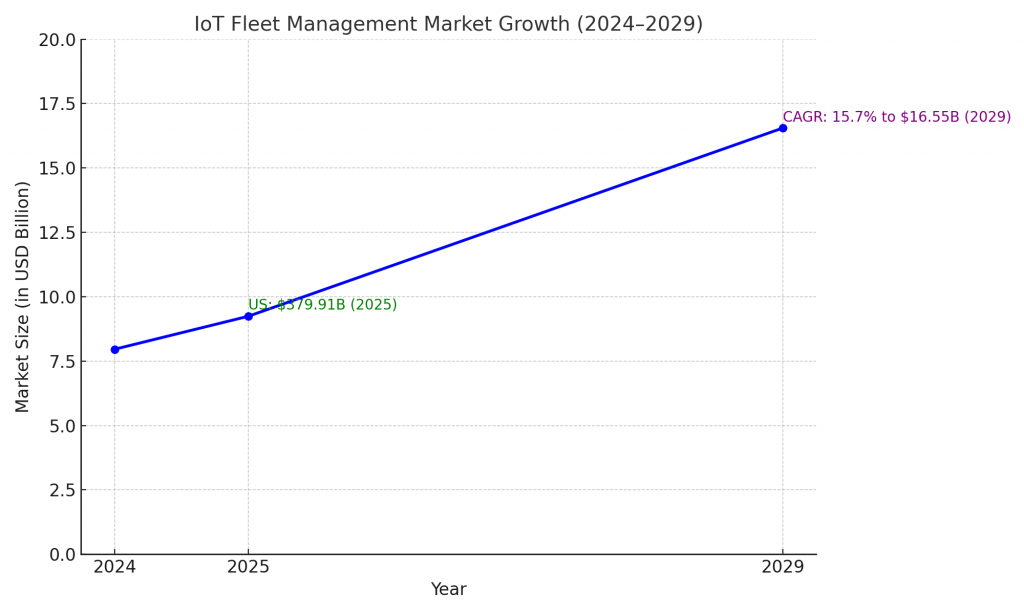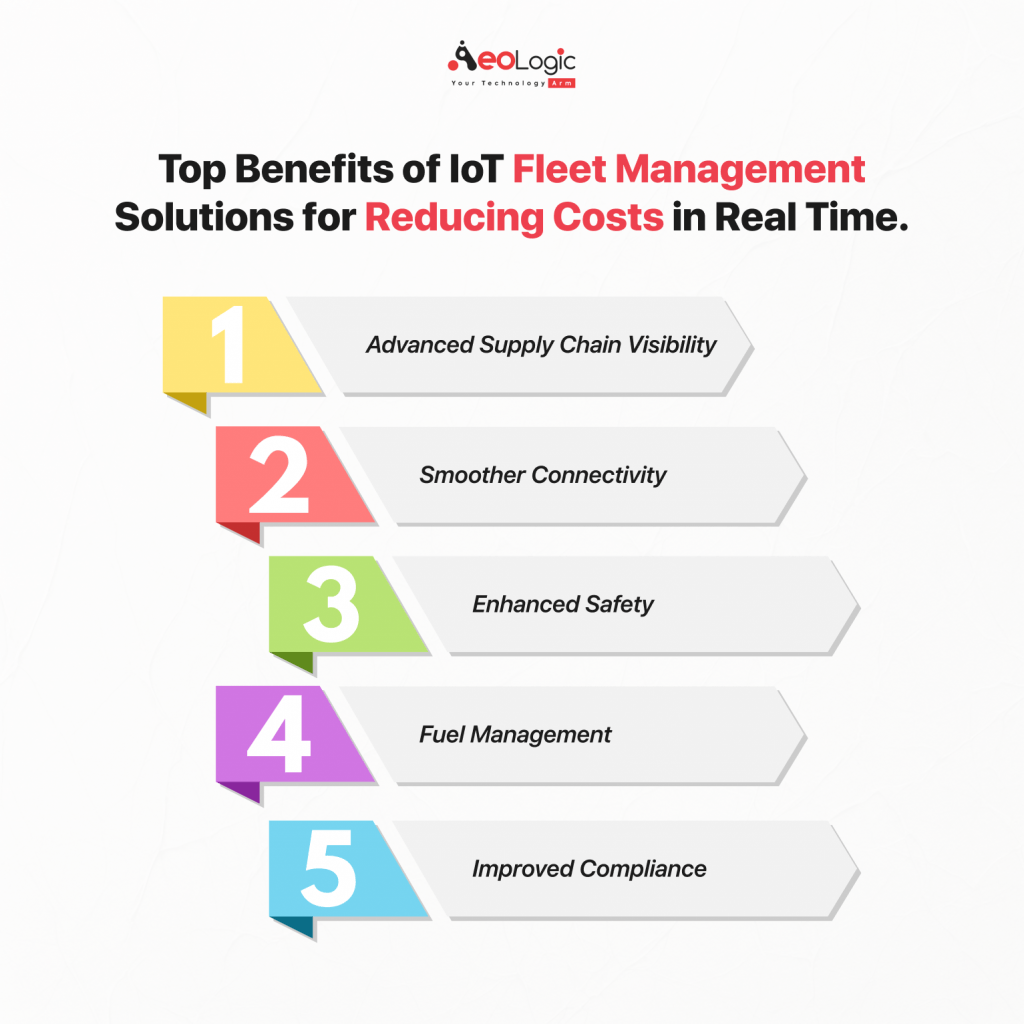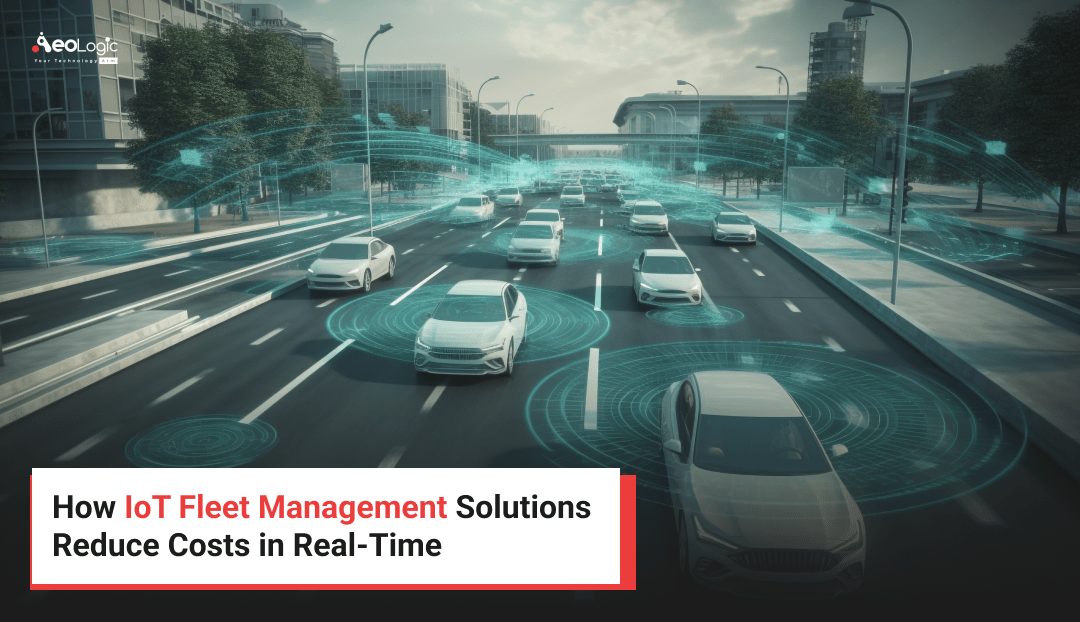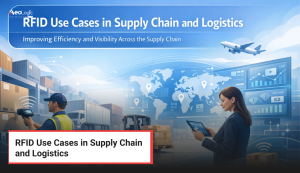Managing a fleet of vehicles can be challenging and costly. IoT fleet management solutions help companies track their vehicles in real-time. It leads to smarter decisions and reduced expenses. These tools offer significant data on fuel usage, maintenance needs, and driver behavior. With this information, businesses can save money and enhance their overall efficiency.
The logistics industry involves the delivery of goods from one place to another, which is generally done by a fleet of vehicles. This is essential, as the products or goods are outside the business areas, and anything can happen if they are not monitored properly. Many businesses face problems due to a lack of proper fleet management solutions, such as theft, loss of items, unnecessary fuel consumption, bad driver behavior, late delivery, etc. This has a bad impact on a business’s overall revenue generation, which is not a good sign in the context of success. So, to solve all these problems and enable better fleet management, IoT solutions providers play a great role.
IoT fleet management solutions lower expenses instantly by offering real-time insight, facilitating predictive maintenance, streamlining routes, and enhancing driver behavior. This results in lower overall costs by reducing fuel use, minimizing maintenance costs, and improving operating efficiency. Apart from cost reduction, the IoT fleet management solutions offer various other benefits too, like smoother connectivity, driver safety, better asset sustainability, and improved compliance. Overall, IoT fleet management becomes an important tool for businesses to drive safe, cost-effective, and timely delivery with fleets.
Global IoT Market Growth

The Internet of Things market is expected to witness a significant surge in revenue, reaching a staggering US$1.06tn by 2025 worldwide. Looking ahead, the market is anticipated to grow at an annual growth rate of 10.17% (CAGR 2025-2029), resulting in a remarkable market volume of US$1.56tn by 2029.
In terms of global comparison, the United States is expected to lead the pack, generating the highest revenue of US$379.91 billion in 2025. The IoT fleet management market size has grown rapidly in recent years. It will grow from $7.96 billion in 2024 to $9.24 billion in 2025 at a compound annual growth rate (CAGR) of 16.1%. It will grow to $16.55 billion in 2029 at a compound annual growth rate (CAGR) of 15.7%.
Expert in: Cold Chain IoT Solutions – Redefining Last-Mile Logistics
Overview: IoT Fleet Management Solutions
IoT fleet management refers to implementing IoT software solutions and sensors or other devices for managing various operations in a fleet. IoT-powered fleet management solutions can track the driver location, vehicle conditions, and asset conditions by implementing various devices and software systems in the fleet management system.
The few key advantages of IoT fleet management solutions are real-time location tracking, predictive maintenance, route optimization, and improved safety features. The IoT fleet management solutions are just taking fleet management to a new level, where every aspect gets enhanced.
Also Read: IoT Solutions for Logistics and Supply Chain Management
Top Benefits of IoT Fleet Management Solutions for Reducing Costs in Real Time
There are various key benefits of IoT fleet management solutions for reducing costs in real-time. Here are a few mentioned below.

Advanced Supply Chain Visibility
One of the key benefits of IoT fleet management is that it enhances or enables advanced supply chain visibility in comparison to traditional methods. The IoT fleet management solutions provide real-time monitoring for end-to-end processes like shipment tracking, vehicles, inventory, etc. This enables businesses to ensure timely deliveries without any inefficiencies, which enhances the efficiency of businesses.
Smoother Connectivity
Smoother connectivity is a key thing to enhance communication, as IoT-powered fleet management solutions can enhance connectivity with the use of wifi and 5G. For fleets that carry passengers, goods, products, etc., support exact number counts with the IoT fleet management solutions.
Enhanced Safety
Safety is another important aspect of managing a fleet in a business. The IoT-powered fleet management solutions can enhance the safety of assets, vehicles, passengers, and drivers by real-time monitoring. If there is any threat or fault detected in the vehicle, the system automatically warns the drivers, allowing them to take immediate action to enable safety measures for the fleet.
Fuel Management
The optimization of resources in a better way can reduce unnecessary expenses that can be enhanced with IoT-powered solutions. There can be various aspects or resources that can be optimized with the IoT fleet management solutions, and fuel is one of them. Fuel-level information from IoT assists fleet managers in minimizing waste, maximizing resource use, and identifying unproductive driving practices.
By analyzing data from mobile hydraulic and off-road equipment, fleet managers can identify fuel waste and develop strategies for conservation. A user-friendly platform allows for effective management of users and devices, ensuring secure information sharing.
Improved driver behavior can be encouraged through feedback from real-time data analysis, guiding drivers on more efficient vehicle operation. Partner solutions enhance this approach with cloud services and security features like an encrypted gateway, making the system compatible with firewalls.
As a result, companies can gain better cost control, positively impacting their finances while effectively addressing fuel consumption.
Also Read: The Importance of Fleet Management Systems in Logistics
Improved Compliance
Maintaining compliance with regulations is important to prevent any penalties. The IoT-powered fleet management allows you to get information about the industry-specific rules and regulations that help you to maintain and improve compliance. This helps to reduce the costs by eliminating any unnecessary expenses. This also makes a great impact on the return on investment aspect.
Also Read: How Industrial IoT Is Optimizing Supply Chain And Logistics
Top Technologies Used for Fleet Management
Fleet management requires a combination of technologies. The following table covers significant fleet management technologies, their functionalities, and their industry applications:
| Technology | Purpose/Usage |
|---|---|
| GPS Tracking | Real-time location tracking of vehicles |
| RFID Technology | Asset identification and inventory tracking |
| IoT Sensors | Monitoring vehicle conditions and driver behavior |
| Telematics | Data transmission between vehicles and central systems |
| AI & Machine Learning | Predictive maintenance, route optimization, driver analysis |
| Fleet Management Software | Centralized management of fleet operations |
| Dashcams & Video Telematics | Driver monitoring and incident documentation |
| Mobile Apps | On-the-go fleet access and communication |
| Cloud Computing | Secure storage and easy access to fleet data |
| Big Data Analytics | Analyzing large volumes of fleet data for insights |
Cost of Implementation of IoT Fleet Management Solutions
The cost of implementation of IoT fleet management solutions can be influenced by various factors like hardware type, software integration, potentially ongoing maintenance, subscriptions, installation, customization, development platform, and several vehicles.
The cost of hardware can range from $100 to $500 per vehicle, depending on the device’s capabilities. Software development or integration can range from $7,000 to $35,000 for basic systems or $20,000 to $2,000,000 for more advanced features, depending on complexity and custom requirements.
If you’re developing custom fleet management software, costs can range from $7,000 to $35,000 for basic systems to $20,000-$200,000 for more complex solutions with features like automated trip routing and predictive maintenance.
| Cost Component | Estimated Cost Range | Cost Influencing Factors |
|---|---|---|
| Hardware (per vehicle) | $100 – $500 | Device capabilities, number of vehicles |
| Software Development / Integration (Basic) | $7,000 – $35,000 | Integration needs, platform, features |
| Software Development / Integration (Advanced) | $20,000 – $2,000,000 | Complexity, custom requirements, scalability |
| Custom Fleet Management Software (Basic) | $7,000 – $35,000 | Platform, number of features, UI/UX |
| Custom Fleet Management Software (Advanced) | $20,000 – $200,000 | Advanced features like predictive maintenance, trip automation |
Also Read: Top IoT Solutions for Heavy Equipment Management
Final Words
The key trends include AI/ML predictive integrations, cloud computing, blockchain, data communication technologies integration, HD mapping, sensor processing, and vehicle-to-vehicle communication. AI/ML integration can be used to analyze data gathered by IoT during fleet management, which enhances decision-making.
The blockchain can enhance security by centralizing every aspect. When it comes to IoT devices like Bluetooth and RFID tags, strong connectivity plays a key role in enabling smooth and seamless communication.HD mapping-powered integration with IoT fleet management systems can be used to get accurate information about the traffic patterns that help with route optimization. These are all trends that are going to boost the IoT fleet management solutions in such a way that they directly make a positive impact on business revenue generation.
FAQ
How do IoT fleet management solutions help in reducing fuel costs?
IoT fleet management solutions reduce fuel costs by providing real-time tracking, enabling route optimization, monitoring driver behaviors like idling, and scheduling maintenance. For example, using route planning software can cut mileage, while driver feedback tools can minimize aggressive driving, both leading to significant fuel savings.
What specific real-time data does IoT technology provide for fleet management?
IoT technology for fleet management provides real-time data such as vehicle location, speed, fuel consumption, and engine diagnostics. For example, GPS tracking allows instant route optimization, while fuel monitoring helps reduce costs by identifying inefficiencies.
In what ways can IoT fleet management solutions improve vehicle maintenance and reduce repair costs?
IoT fleet management can enhance vehicle maintenance by using real-time diagnostics to predict failures, schedule preventive maintenance, and optimize parts usage. For example, monitoring tire pressure and engine metrics can prevent costly breakdowns and extend vehicle lifespan, ultimately reducing repair costs.
How does real-time tracking of vehicles contribute to cost savings in fleet operations?
Real-time vehicle tracking enhances route optimization, reduces fuel consumption, and minimizes idle time. For example, a delivery fleet can reroute vehicles to avoid traffic, saving fuel costs and increasing delivery efficiency. Additionally, it aids in maintenance scheduling, preventing costly repairs and downtime.
Can IoT fleet management solutions enhance driver performance and lead to lower operational costs?
Yes, IoT fleet management solutions can enhance driver performance by providing real-time data on driving habits, optimizing routes, and reducing idle time. For example, telematics systems can track speed and fuel usage, leading to better driving practices and lower operational costs through efficient resource management.

I’m Deepika Pandey, an SEO strategist and content writer with 6+ years of experience. I create SEO-friendly content that drives traffic and engages readers. I combine data insights with creativity to help businesses grow their online presence effectively.






